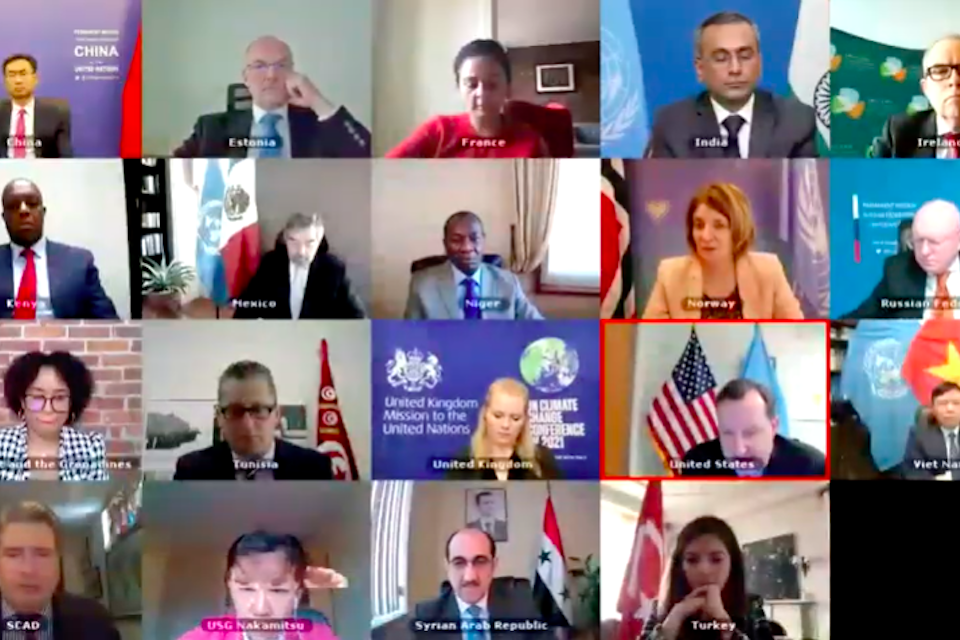Pursuing the elimination of the Syrian chemical weapons programme
Statement by Sonia Farrey, UK Political Coordinator at the UN, at the Security Council briefing on Syria Chemical Weapons

I thank High Representative Nakamitsu for her briefing today.
I also thank the Director-General of the OPCW for his latest monthly report and for the ongoing work of his team to pursue elimination of the Syrian chemical weapons programme, despite the limitations imposed by the pandemic.
Mr President, we are here to discuss yet again Syria’s failure, over a seven-year period, to resolve the outstanding issues in its initial chemical weapons declaration. This is a failure to fulfil the requirements of the OPCW Executive Council Decision of 27 September 2013 - all aspects of which the Security Council decided Syria should comply with in resolution 2118.
As the Council is aware, the 19 unresolved issues are of a serious and substantive nature. The Director-General’s report makes clear again this month that one of unresolved issues relates to the identified production and/or weaponsation of chemical nerve agents at a facility previously declared by the Syrian National Authority as never having been used for this purpose. The OPCW Technical Secretariat has asked Syria to declare the “exact types and quantities of chemical agents produced and/or weaponised at the site in question”. There has been no response as yet.
The ongoing threats to international peace and security posed by the unresolved issues are not hypothetical or academic. In its report of 18 February, the UN Commission of Inquiry, whom we heard from in the General Assembly on Tuesday, stated that of 38 documented instances of chemical weapons use since the start of the conflict in Syria, 32 met the Commission’s standard of proof for attribution to Syrian government forces. We already know that since the start of the conflict, the UN and the OPCW have found the Syrian regime to have used chemical weapons on at least seven occasions. It is clear that the Syrian regime has retained the capability and willingness to use chemical weapons. This is not a matter of conjecture, but a matter of fact established by investigations of mandated multilateral authorities that apply internationally recognised standards of proof and are accountable to their membership.
At the other end of the spectrum, those seeking to call into question the objectivity and undermine the integrity of the OPCW, do not appear to observe any standards of proof and do not come to the matter with clean hands. Their interest is that they are undermining the international institutions and other competent authorities that can and have identified them as responsible for the use of chemical weapons.
In this regard, I would like to take the opportunity to remember the one person who sadly died and the several others that were injured following events three years ago today, when two operatives of the Russian military intelligence service, the GRU, used a Novichok nerve agent on British soil in Salisbury.
It is a reminder that we should not lose sight of our responsibility to prevent the proliferation and use of chemical weapons.
Finally, we note that both the UN-OPCW Joint Investigative Mechanism and the Commission of Inquiry each identified one occasion on which ISIL has also used chemical weapons. That is an equally abhorrent act and a breach of international peace and security. We agree with others that any credible and well-evidenced allegations of the use of chemical weapons by such groups should be investigated, and attribution and accountability pursued as for any user of chemical weapons.